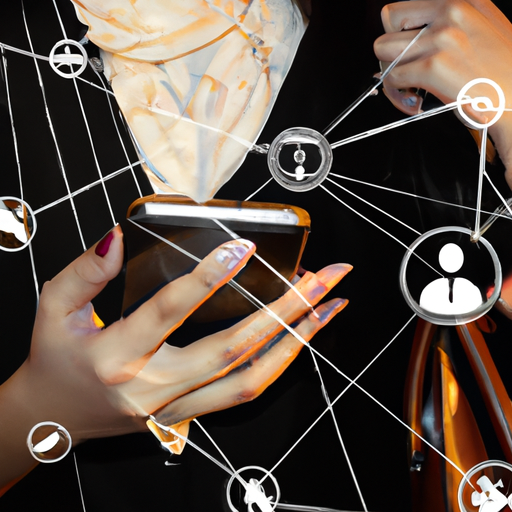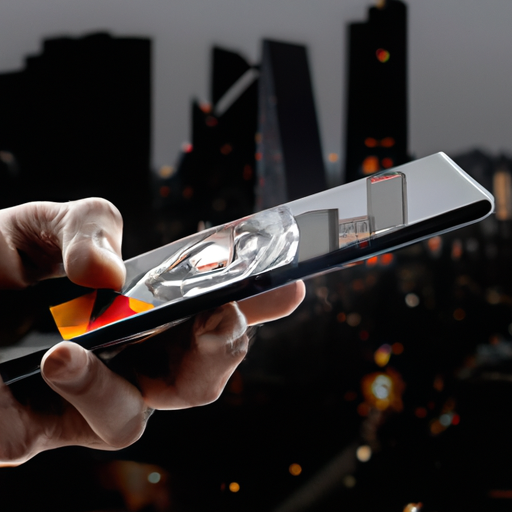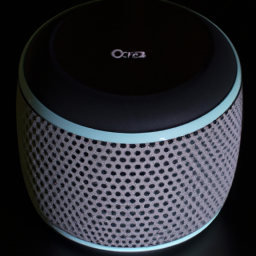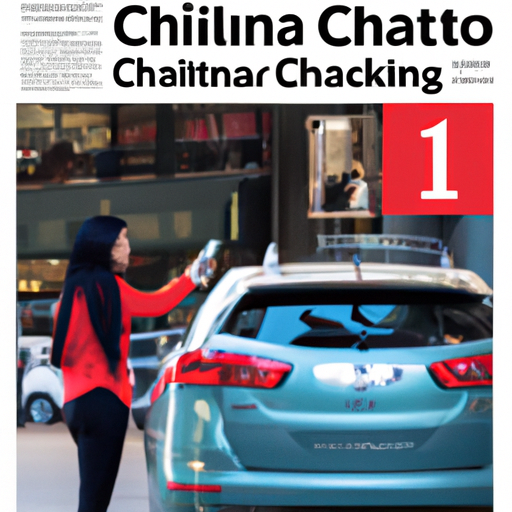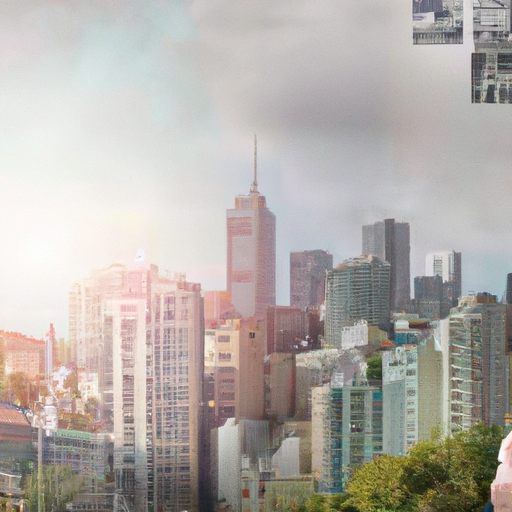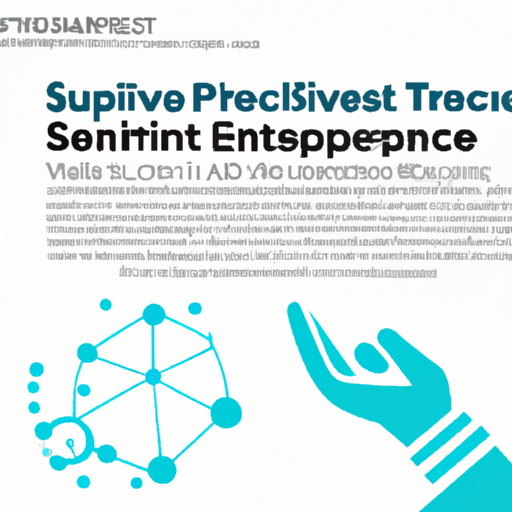Hospitality Technology Trends
In the rapidly evolving world of hospitality, staying ahead of the curve is crucial. As technology continues to shape the industry, it’s important to be aware of the latest trends that are revolutionizing the way hotels, restaurants, and other establishments operate. From contactless check-ins and smart room controls to personalized guest experiences and advanced data analytics, the hospitality sector is embracing technology like never before. In this article, we’ll explore some of the most prominent hospitality technology trends that are reshaping the landscape and enhancing the overall guest experience.

Table of Contents
Mobile check-in and check-out
Convenience and efficiency
With mobile check-in and check-out, you have the convenience of skipping the long lines at the front desk when arriving at a hotel. Instead, you can simply use your smartphone to check-in and receive your room key electronically. This not only saves you time but also provides a more efficient process for the hotel staff. Similarly, when it’s time to check-out, you can do so easily through the hotel’s mobile app, avoiding the need to wait in line again. Mobile check-in and check-out streamlines the entire experience, allowing you to quickly settle into your room or head out to your next destination.
Contactless experience
In today’s world, where hygiene and safety have become paramount, mobile check-in and check-out offer a contactless experience. By minimizing the need for physical interaction, you can reduce the risk of coming into contact with germs or viruses. With just a few taps on your smartphone, you can complete the check-in and check-out process without handing over any documents or touching shared surfaces. This contactless experience provides peace of mind and reassurance, ensuring a safer stay at the hotel.
Personalization
Mobile check-in and check-out also enable hotels to offer a more personalized experience. Through the hotel’s mobile app, you can provide preferences and special requests before your arrival, allowing the hotel to prepare your room accordingly. Whether it’s a specific pillow type, room temperature, or favorite snacks, your preferences can be tailored to ensure a more comfortable and enjoyable stay. This level of personalization enhances the overall guest experience and makes you feel valued and appreciated by the hotel.
Voice-controlled devices
Enhanced guest experiences
Voice-controlled devices, such as smart speakers or virtual assistants, can greatly enhance your experience as a guest. By simply using your voice, you can control various aspects of your hotel room, including lighting, temperature, and entertainment systems. This hands-free convenience adds a modern touch to your stay and makes it effortless to create the desired ambiance or access information. Additionally, voice-controlled devices can provide recommendations for nearby attractions, restaurants, or events, allowing you to make the most of your time in a new city.
Efficient operations
From the hotel’s perspective, voice-controlled devices also contribute to efficient operations. By integrating these devices into the hotel room, staff can easily monitor and manage room conditions remotely. For instance, when a room is unoccupied, the temperature can be adjusted automatically to save energy, and upon check-out, all settings can be reset to optimize efficiency. This automation reduces the workload for hotel staff, allowing them to focus on providing exceptional service and attending to more pressing matters.

Artificial intelligence and machine learning
Personalized recommendations
Artificial intelligence (AI) and machine learning technologies have the ability to analyze vast amounts of data to provide personalized recommendations. When you book a hotel, these technologies can consider your past preferences, reviews, and behavior to suggest accommodations that best match your needs. Whether it’s suggesting nearby attractions, personalized dining options, or room upgrades, AI and machine learning algorithms can enhance your overall travel experience by tailoring recommendations specifically to you.
Automated customer service
With AI-powered chatbots and virtual assistants, hotels can provide automated customer service 24/7. If you have any questions or need assistance during your stay, you can simply ask the virtual assistant, and it will provide instant responses or direct you to the appropriate resources. This automation streamlines the customer service process, reducing wait times and ensuring prompt assistance. Whether it’s requesting additional amenities, making restaurant reservations, or inquiring about hotel policies, AI-powered customer service provides a seamless and efficient experience.
Efficient operations
AI and machine learning also contribute to efficient operations within the hotel industry. By analyzing data on occupancy rates, pricing trends, and guest preferences, hotels can optimize their operations to maximize revenue and improve customer satisfaction. These technologies can help identify patterns and trends, allowing hotels to adjust staffing levels, pricing strategies, and inventory management accordingly. With AI and machine learning, hotels can make data-driven decisions to streamline operations and adapt to market demands effectively.
Internet of Things (IoT)
Smart rooms and automated controls
The Internet of Things (IoT) enables the connectivity of devices within a hotel room, creating smart rooms that provide automation and convenience. Through IoT, you can control various aspects of your room using a central device or smartphone app. This includes adjusting the lighting, temperature, curtains, and even ordering room service without the need to pick up a phone or leave your room. The integration of IoT transforms hotel rooms into customizable spaces that cater to your specific needs and preferences, enhancing your overall comfort and convenience.
Improved energy efficiency
IoT in the hospitality industry also brings significant environmental benefits, particularly in terms of energy efficiency. Through sensors and automation, hotels can monitor occupancy in real-time and adjust energy consumption accordingly. When a room is unoccupied, lights can be automatically turned off, and the temperature can be adjusted to save energy. These energy-saving measures not only reduce costs for the hotel but also contribute to a more sustainable environment. By leveraging the power of IoT, hotels can minimize their carbon footprint while providing a comfortable and eco-friendly experience for guests.
Enhanced guest experience
IoT enhances the overall guest experience by providing personalized and seamless interactions. For example, with IoT-enabled in-room devices, hotels can anticipate your needs and preferences. Your favorite TV channels, preferred lighting settings, or even a warm welcome message can be automatically set upon entering the room. Moreover, IoT can enable interactive features like voice commands for ordering services, providing recommendations, or controlling room settings. These personalized and intuitive interactions create a memorable and delightful experience for guests, ensuring that their stay is both convenient and enjoyable.

Virtual and augmented reality
Immersive guest experiences
Virtual and augmented reality technologies offer a new level of immersion and engagement for hotel guests. With virtual reality, you can take virtual tours of a hotel’s facilities, such as the spa, pool, or restaurant, before making a booking. This immersive experience allows you to explore and experience the hotel as if you were physically present, giving you a clearer idea of what to expect before arriving. Augmented reality, on the other hand, can provide additional information or virtual overlays on real-world objects, enabling interactive experiences and enhancing the overall guest experience.
Virtual tours and presentations
Virtual and augmented reality also offer hotels the opportunity to conduct virtual tours or presentations for potential guests. Through virtual reality headsets or augmented reality applications, hotels can showcase their amenities, room types, and special features in a highly engaging and interactive manner. This saves both guests and hotels time and resources by providing a virtual experience that closely resembles the real-life experience. By leveraging virtual and augmented reality technologies, hotels can captivate and entice potential guests, ultimately leading to more bookings and higher guest satisfaction.
Biometric technology
Enhanced security and access control
Biometric technology, such as facial recognition or fingerprint scanning, provides enhanced security and access control in the hospitality industry. By utilizing unique biological characteristics for identification, hotels can ensure that only authorized individuals have access to certain areas or services. For instance, biometric systems can be used to unlock hotel room doors, access fitness centers, or provide personalized services. This eliminates the need for physical keys or access cards, reducing the risk of unauthorized entry and providing peace of mind for both guests and hotel staff.
Efficient guest identification
In addition to security, biometric technology improves the efficiency of guest identification processes. Instead of manually verifying identification documents or searching through records, hotels can quickly and accurately identify guests through biometric data. This speeds up the check-in and check-out process, reducing wait times and providing a smoother experience. Moreover, biometric technology can be integrated with other hotel systems, such as loyalty programs or room preferences, allowing for personalized and seamless interactions throughout the guest’s stay.
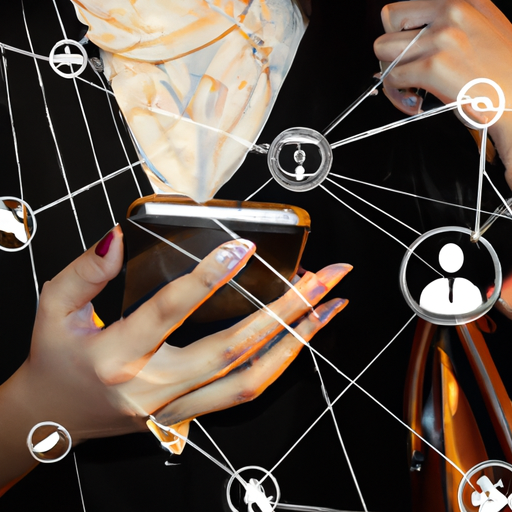
Robotics and automation
Automated room service
Robotics and automation play a significant role in providing efficient and contactless room service. Robots can be deployed to deliver items, such as food, beverages, or extra towels, directly to your hotel room. This eliminates the need for human interaction, reducing the risk of errors or contamination. These robots are equipped with sensors and mapping technology, allowing them to navigate through hallways and elevators autonomously. By utilizing robotics, hotels can provide a faster and more efficient room service experience, ensuring your needs are met promptly and accurately.
Efficient housekeeping
Robots can also be employed for efficient housekeeping operations in hotels. With their ability to navigate and clean autonomously, robots can assist in cleaning guest rooms, common areas, or even outdoor spaces. By automating repetitive tasks, such as vacuuming or mopping, robots free up hotel staff to focus on more complex and guest-oriented activities. This not only improves the overall efficiency and turnaround time of housekeeping operations but also ensures a consistently clean and sanitized environment for guests.
Contactless deliveries
In light of the current global health crisis, contactless deliveries have become essential in the hospitality industry. By utilizing robots or automated delivery systems, hotels can ensure that items, such as food, beverages, or amenities, are delivered to your room without any direct human contact. These contactless deliveries reduce the risk of transmission and provide a safe and hygienic experience for both guests and hotel staff. Additionally, automated delivery systems can be programmed to deliver items at specific times, ensuring timely service and convenience.
Blockchain technology
Secure and transparent transactions
Blockchain technology offers secure and transparent transactions within the hospitality industry. With blockchain, all transactions, such as room bookings or payments, are recorded in a decentralized and tamper-proof ledger. This ensures the integrity of data and reduces the risk of fraud or unauthorized modifications. By leveraging blockchain technology, hotels can provide guests with a higher level of trust and security when it comes to financial transactions. Whether it’s booking a room or redeeming loyalty points, blockchain facilitates secure and transparent transactions for a seamless guest experience.
Efficient loyalty programs
Blockchain technology also enhances the efficiency of loyalty programs in the hospitality industry. By implementing blockchain-based loyalty programs, hotels can eliminate the need for separate loyalty cards or accounts. Instead, loyalty points or rewards can be stored and accessed directly through a blockchain network. This streamlines the process of earning and redeeming rewards, as well as enables interoperability between different hotels or travel providers. Blockchain-based loyalty programs create a more seamless and convenient experience for guests, encouraging repeat business and enhancing customer loyalty.
Data analytics and predictive modeling
Personalization and customization
Data analytics and predictive modeling enable hotels to offer a high level of personalization and customization to their guests. By analyzing data on guest preferences, behaviors, and booking patterns, hotels can anticipate individual needs and tailor their offerings accordingly. For example, if you have a history of booking rooms with a specific view or requesting extra pillows, hotels can proactively provide these personalized amenities. Data analytics and predictive modeling empower hotels to go beyond generic recommendations and create truly customized experiences, making you feel valued and understood as a guest.
Demand forecasting
Accurate demand forecasting is crucial for hotels to optimize their operations, pricing strategies, and resource allocation. By utilizing data analytics and predictive modeling, hotels can analyze historical data, market trends, and external factors to forecast future demand accurately. This allows hotels to make informed decisions regarding room rates, staffing levels, and inventory management. With the ability to predict demand fluctuations, hotels can maximize revenue opportunities and minimize losses, ultimately providing a more efficient and reliable experience for guests.
Revenue management
Data analytics and predictive modeling also play a significant role in revenue management within the hospitality industry. By analyzing data on booking patterns, market demand, competitor rates, and guest preferences, hotels can optimize their pricing strategies to maximize revenue. Dynamic pricing algorithms can adjust room rates in real-time based on factors such as occupancy rates, seasonality, or even local events. This ensures that hotels stay competitive in the market while also offering attractive pricing options to guests. Through data analytics and predictive modeling, hotels can make data-driven revenue management decisions, resulting in increased profitability and guest satisfaction.
Enhanced marketing strategies
Data analytics and predictive modeling have revolutionized marketing strategies in the hospitality industry. By analyzing guest data and behavior patterns, hotels can create targeted marketing campaigns that resonate with individual preferences and needs. Whether it’s personalized email offers, tailored social media ads, or customized loyalty program rewards, hotels can effectively engage with guests on a personal level. This level of personalized marketing increases the likelihood of repeat bookings, fosters guest loyalty, and ultimately drives revenue growth. With data analytics and predictive modeling, hotels can improve their marketing efforts, ensuring that their messaging is relevant, timely, and impactful.
Cloud computing
Scalability and flexibility
Cloud computing offers hotels scalability and flexibility in managing their operations and data. By storing data and applications in the cloud, hotels can easily scale their infrastructure to meet changing demands. Whether it’s accommodating a sudden increase in bookings or expanding their services, cloud computing provides the necessary agility and resources. Additionally, cloud-based systems enable hotels to access data and applications from anywhere, allowing for remote management and enhanced collaboration among staff. With cloud computing, hotels can keep up with evolving industry trends and ensure a seamless guest experience.
Data security
Data security is of utmost importance in the hospitality industry, and cloud computing offers reliable and robust security measures. By storing data in the cloud, hotels can leverage advanced security protocols and encryption methods to protect sensitive information. Cloud service providers dedicate significant resources to ensure data privacy and compliance with industry regulations. Additionally, cloud-based backups and disaster recovery solutions provide peace of mind, ensuring that data is protected and can be quickly restored in case of any unforeseen events. With cloud computing, hotels can prioritize data security and safeguard guest information effectively.
Streamlined operations
Cloud computing streamlines hotel operations by centralizing data and enabling efficient collaboration. Through cloud-based property management systems (PMS), hotels can manage reservations, guest profiles, and operational processes in a unified platform. This eliminates the need for multiple systems or manual data entry, reducing the risk of errors and improving overall efficiency. Moreover, cloud-based PMS facilitates real-time updates and synchronization, ensuring that information is accurate and up-to-date across all departments. By utilizing cloud computing, hotels can streamline their operations, enhance internal communication, and provide a seamless experience for guests.
